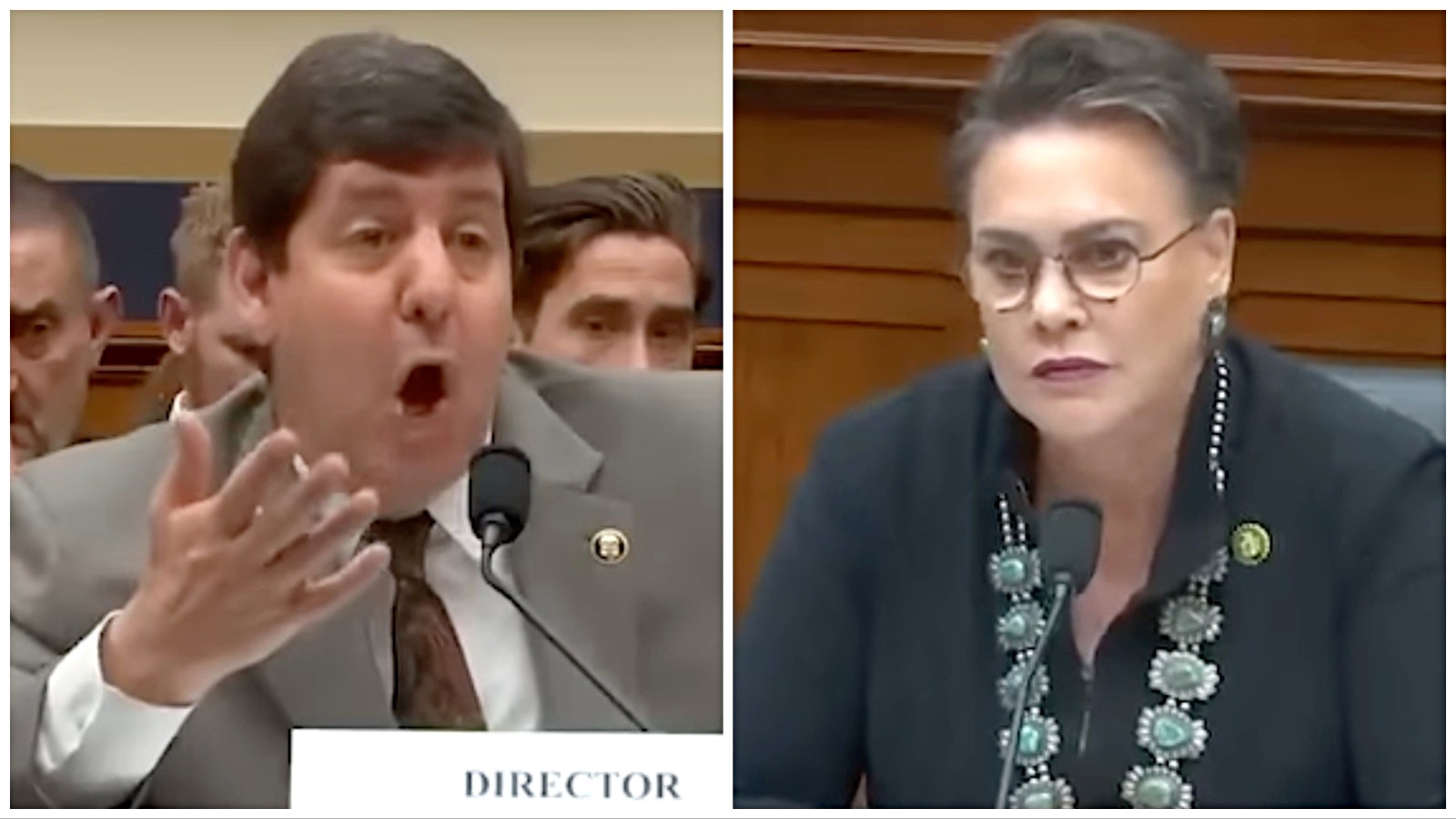U.S. Rep. Harriet Hageman is moving forward with her push against the actions of “unelected bureaucrats,” grilling Bureau of Alcohol, Tobacco, Firearms and Explosives (ATF) Director Steven Dettelbach about his agency’s regulation on pistol braces and bump stocks during a House Judiciary Committee meeting.
Pistol Braces
Pistol braces effectively allow a pistol to operate as a short-barreled rifle. They’ll become illegal to possess without a license by June 1, under an ATF ruling.
Hageman said during a committee meeting last week that many people believe the ATF is “undermining the role of representative government” with its pistol brace ban and said the government agency and the “entire administrative state” is engaging in illegal lawmaking.
In 2010, the ATF determined that bump stocks are accessories, or firearms parts, and therefore not regulated as firearms. The ATF made a similar about-face on pistol braces, previously finding them to be legal accessories.
“What the ATF did with the bump stock is very similar to what you’re attempting to do with the pistol-brace rule isn’t it?” Hageman questioned.
After briefly stammering, Dettelbach said he doesn’t find the two determinations to be similar.
“The ATF eventually changed their mind, but not because Congress issued any new law, it was a new interpretation on your part,” Hageman said to Dettelbach.
Dettelbach defended the new ruling and said prior owners of the devices wouldn’t likely face prosecution and a 10-year prison sentence.
The new pistol brace rules have already been challenged in court, and a similar ban on bump stocks was handed a blow by a federal appeals court last week.
Bump stocks
Bump stocks are attachment devices that allow semiautomatic weapons to rapidly fire multiple rounds of ammunition. The devices became illegal in the United States in 2019. Civilian possession of fully automatic weapons was outlawed in America in 1986 except for those already lawfully owned.
Dettelbach mentioned how he fired a bump stock, finding it impossible to shoot a single round.
Hageman mentioned a federal lawsuit that challenges the ATF’s bump stock rule. The ATF had argued that bump stocks and other firearm accessories qualify as machine guns, despite Congress not passing any legislation to this effect. There were bills drafted related to the finding, but none passed.
The Fifth Circuit Court of Appeals ruled against the ATF in January, finding it guilty of “short-circuiting the legislative process,” and that the agency cannot supersede Congress in its determination of criminal prohibitions.
The Sixth Circuit came to a similar finding last week, but a different appeals court sided with the ATF.
President Joe Biden's administration has asked the U.S. Supreme Court to hear its appeal of that decision. Bans on bump stocks were upheld in different appeals courts in the past.
Dettelbach defended the rule to Hageman, saying it had been established under former President Donald Trump’s administration.
In 2018, Trump issued a memorandum instructing the Attorney General “to dedicate all available resources to … propose for notice and comment a rule banning all devices that turn legal weapons into machineguns.”
The ban was enacted in response to a deadly mass shooting in Las Vegas in which the shooter used bump stocks.
Rules Vs. Laws
Hageman said she finds the actions of the ATF to be part of a larger trend of actions by “unelected bureaucrats” to expand and “weaponize” their power and increase gun laws to infringe on the Second Amendment.
The alleged weaponization of the federal government has been a common topic before the House Judiciary Committee, now featuring a Republican majority and chaired by U.S. Rep. Jim Jordan of Ohio, who frequently addresses the topic.
“Your agenda becomes even more dangerous combined with this administration’s anti-gun views, which is pushing to infringe on our Constitution and natural rights,” Hageman said.
Dettelbach said it is the responsibility of the ATF to protect people from violent crime and catch people who are violating the law using firearms.
“When Congress passes a law that Congress determines advances public safety, like the National Firearms Act, the law has to be implemented by somebody, the law has to be enforced by somebody,” he said. “Law enforcement officials like myself, and the brave men and women that work for me, do that.”
Hageman found fault with this argument, saying Congress never passed any law restricting bump stocks.
Dettelbach said it didn’t need to for the ATF to restrict use of the devices, as Congress delegates rulemaking authority to the agency.
When she further pressed the director on whether Congress passed legislation on pistol braces, he said the ATF had the right to regulate these devices based on the National Firearms Act.
“He won’t answer my question,” Hageman remarked to Chairman Jordan.





